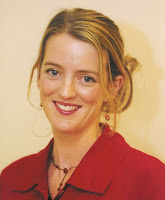Running June 9th through 16th this year, the biennial
Boston Early Music Festival (BEMF) is a biennial cavalcade of Medieval, Renaissance, and Baroque music featuring top early music performers and ensembles from around the world. I covered it along with a raft of other critics from the
Music Critics Association of North America (MCANA), which had its annual conference this in conjunction with BEMF.
Share on Google+
Day two of the festival and conference could have been called a Manic Monday, except that it was Friday. MCANA members had a 10 AM session on Baroque opera in general and the festival’s production of Handel’s “Almira” in particular, followed by lunch, followed by a Q and A session on early music. Both of those sessions were interesting enough to deserve their own blog posts, so I won’t go into detail on them here.
 |
| Gli Incogniti |
The first concert of my day (at 5 PM) was at the New England Conservatory’s Jordan Hall, site of the majority of the BEMF concerts. It featured four members of the Italian ensemble
Gli Incogniti (Amadine Beyer, Baroque violin; Baldomero Barciela, viola da gamba; Francesco Romano, theorbo and Baroque guitar; and Anna Fontana, harpsichord and organ) in “Viennoiseries: Austrian Music in the
Stylus Fantasticus from the 17th Century.”
Stylus Fantasticus, according to program notes by Ms. Beyer, is a compositional approach associated with the Austrian Hapsburg courts of the latter half of the 17th century and is characterized by “a flamboyant and original style not found in other music of the period.” If what I heard at Jordan Hall on Friday was any indication, this is also music that demands considerable virtuosity—which it certainly got from this group.
Ms. Beyer was particularly stunning in von Biber’s “Sonata violino solo representativa,” in which the soloist is called upon to imitate a variety of birds and beats (including Musketeers!) as was Francesco Romano in a Toccata from Johannes Heironymous Kapsberger's 1640 "Libro Quarto", but all four members impressed me with their skill. I’m told Ms. Fontana, who worked with a harpsichord stacked on top of an organ console, thereby enabling her to elegantly play both at once, had a terrific solo of her own towards the end of the program. Alas, I missed it, because I had to dash across town to the Cutler Majestic Theater to make the 7 PM curtain of Handel’s “Almira.”
 |
Almira and ladies in waiting
Photo: classical-scene.com |
“Almira” was the first operatic hit by the 19-year-old Handel, who got the commission to compose it because, essentially, he was in the right place at the right time. The libretto by Friedrich Christian Feustking is a preposterous romantic comedy set (more or less) in medieval Spain and revolving around what appears to be a star-crossed romance between the newly crowned Queen Almira (Ulrike Hofbauer) and her secretary Fernando (Colin Balzer). All difficulties are eventually resolved via a ludicrous plot twist worthy of W.S. Gilbert, but not before we’ve had nearly four hours of impressive arias da capo and some lavish set pieces (demanded by the Hamburg audiences), including a Grand Procession of the Continents (Europe, Africa, and Asia; America didn’t count yet).
A four-hour youthful Handel opera might sound like a bit of a slog but in BEMF’s production it was anything but. Director Gilbert Blin and music directors Paul O’Dette and Stephen Stubbs treated both the music and the audience with respect. The production was a scrupulously historic re-creation of the original, complete with forced-perspective sets that looked exactly like the ones I’ve always seen in the history books, period dances, and a historically appropriate acting style that relied on precisely choreographed gestures (hands spread wide to appeal, had extended and finger ranged to admonish/repel, etc.).
And it worked, both as music and drama. Every performer was thoroughly invested in his or her character, each was perfectly cast, and every one sang beautifully.
Ms. Hofbauer and Mr. Balzer were exceptional all the way through. Amanda Forsythe, as Princess Edilia, had what must be the best revenge aria ever in the second act. Jason McStoots got his share of laughs as the comic servant Tabarco. Others in the uniformly fine cast were Christian Immler as the buffoonish Consalvo, Zachary Wilder as his social climber son Osman, Tyler Duncan as the disguised King of Mauretania (who seems to be on board only to make the triple betrothal at the end possible), and Valerie Vinzant as Princess Bellante (ditto).
 |
| Áine Ní Dhroighneáin |
The orchestra, which used instruments appropriate to the period, sounded glorious. The production received a wild ovation and multiple curtain calls. Alas, I had to rush out while they were still going on to make an 11:15 performance of “My Small Dark Rose: Early Irish Songs and Harp Music” at Emmanuel Church a few blocks away.
The titular song and fifteen other traditional Irish songs and instrumentals were performed with consummate style by singer Áine Ní Dhroighneáin and early Irish harper
Siobhán Armstrong, although Ms. Ní Dhroighneáin's singing did not always do justice to the strong emotions in some of the texts—most notably in "Táimse im' Chodldh" ("I am asleep and don't waken me") with its open call for violent rebellion against the English. It was a program of delicate, intimate music—the early Irish harp’s metal strings don’t create a very big sound—that was poorly served by the church’s vast, echoing acoustic. The artists deserved better.
And on that note, I reeled (puns intended) into bed, another day of remarkable music in the offing.




No comments:
Post a Comment